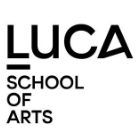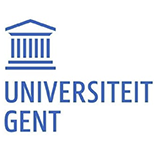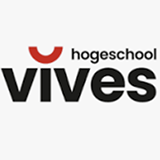Detailed introduction of College of Europe (Bruges):
Introduction
College of Europe (Bruges) is a higher education institution with a high international influence, focusing on education and research related to European affairs, aiming to cultivate professionals who can actively participate in and promote the process of European integration and international cooperation in Europe and even the world.
Overview
Student scale: Every year, students from many countries are enrolled. The student group is highly internationalized, relatively small in scale, and maintains a relatively elite training model. The number of students is about a few hundred, bringing together outstanding students from all over the world who are willing to devote themselves to the field of European affairs.
Course setting: It provides a rich and diverse master's degree courses, mainly focusing on topics closely related to European affairs such as European studies, European integration, international relations, EU law, European political economy, etc. The courses focus on the integration of interdisciplinary knowledge and the combination of practice and theory.
History and establishment time
It was founded in 1949 and was a product that came into being against the background of the reconstruction and integration process of Europe after World War II. At that time, European countries hoped to promote the unity and development of Europe by strengthening educational cooperation, so many visionary European politicians and scholars jointly promoted the establishment of the European Academy.
Since its establishment, it has continued to grow and develop, gradually established a high authority in the field of European affairs education, and became an important position for studying and disseminating knowledge of European integration.
School Strength
Faculty: It has a faculty team composed of top experts, scholars, senior diplomats, policy makers, etc. from European countries and even the world. With their profound professional knowledge, rich practical experience and broad international vision, they bring high-quality and authoritative teaching and guidance to students, helping students to have a deep understanding of all aspects of European affairs.
Teaching Resources: It has established extensive and close cooperative relations with many European government agencies, international organizations, think tanks, etc., which enables the school to provide students with rich internships, practice opportunities and channels to obtain the latest European affairs information and research materials. At the same time, the school is equipped with advanced teaching facilities, such as a professional library, which has a large collection of precious books and documents on European history, politics, law, etc.
International Reputation: Known internationally as the "cradle of elites" in the field of European affairs, its graduates are widely active in many fields such as EU institutions, diplomatic departments of various governments, international organizations, and multinational companies. They play an important role in promoting European integration and international cooperation, and have won an excellent reputation for the school.
Nature of the institution
College of Europe (Bruges) is a private higher education institution, but it has received strong support from many European governments and various international organizations.
Educational philosophy
Adhering to the concept of deepening the awareness of European integration, cultivating cross-cultural communication and cooperation capabilities, and shaping professionals with global vision and social responsibility. Emphasis is placed on allowing students to understand and grasp European affairs from a variety of perspectives, encouraging students to actively participate in international exchanges and practical projects, and improving their ability to analyze and solve European and global cooperation issues through personal experience.
Key disciplines
European Studies: As a core discipline, it covers a full range of research content in multiple dimensions such as European history, culture, politics, economy, and society, aiming to help students build a systematic and comprehensive European knowledge system and deeply understand the development context and current situation of European integration.
EU Law: Focusing on the EU's legal framework, legislation, judicial practice, etc., cultivating professionals who are familiar with the EU legal system, can use legal knowledge to solve practical problems, and participate in related legal affairs, is of great significance to maintaining the EU's rule of law and promoting European integration at the legal level.
International Relations (focusing on the European perspective): From the perspective of Europe's role and status in global international relations and its interactive relations with other countries and regions, it studies foreign policy, international cooperation mechanisms, etc., to help students better represent European interests on the international stage and promote international cooperation.
Department
The school does not strictly divide departments in the traditional sense, but sets up different teaching and research departments around several core areas related to European affairs, such as the Department of European Politics and International Relations, the Department of EU Law, the Department of European Economics, etc. The departments work together to provide students with a comprehensive curriculum system.
Ranking
Due to its professionalism and particularity, it may not be prominent in the conventional world comprehensive university rankings, but it is at the top of the professional rankings in the field of European affairs. It is recognized as a leader in European studies and European integration education, and its reputation and influence are widely recognized internationally.
Cost
Tuition fees: Tuition fees are relatively high. The annual tuition fee for a master's degree program is roughly around 10,000-15,000 euros, but the specific amount will fluctuate depending on factors such as the major and course schedule.
Other expenses: Students also need to consider other expenses such as accommodation, food, study materials, and living expenses. As a city with rich historical and cultural heritage, Bruges has a moderate cost of living, with monthly living expenses of about 800-1200 euros, which varies from person to person.
Campus
Campus environment: The campus is located in Bruges, Belgium, a picturesque and historical city. The campus architectural style combines traditional European elements with modern functional design to create an environment that is both elegant and academic. The surrounding historical monuments and cultural landscapes also add a strong humanistic atmosphere to students' study and life.
Campus facilities: Equipped with complete teaching facilities such as modern classrooms and seminar rooms to meet the needs of various course teaching and academic seminars. There are also libraries, student dormitories, canteens, cafes and various sports and cultural activity facilities, providing students with convenient, comfortable and colorful campus living conditions, making it convenient for students to study, socialize and engage in leisure activities in their spare time.
-

Artesis Plantijn Hogeschool Antwerpen
-

LUCA School of Arts
-

Ghent University
-

Vrije Universiteit Brussel
-

Katholieke Hogeschool VIVES
-

Hogeschool West-Vlaanderen
-

Antwerp Management School
-

University of Antwerp
-

Hogeschool Gent
-

Karel de Grote-Hogeschool
-

Mesoamerican University
-

Istmo University
-

Mariano Galvez University of Guatemala
-

Regional University of Guatemala
-

Galileo University
-

Francisco Marroquín University
-

Rafael Landívar University
-

University of the Valley of Guatemala
-

University of San Carlos of Guatemala
-

Technological Institute of Tlaxcala Plateau
-

Golfo University
-

Technological University of South Sonora
-

Technological University of Huejotzingo
-

Tizimín Institute of Technology
-

Chilpancingo Institute of Technology

